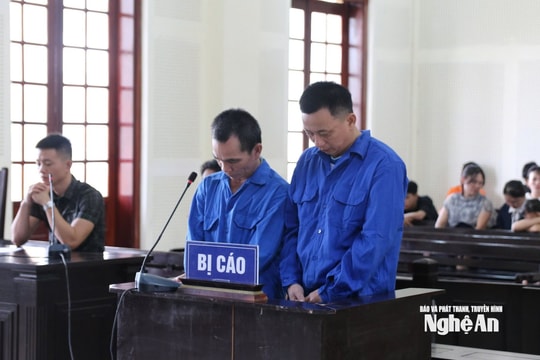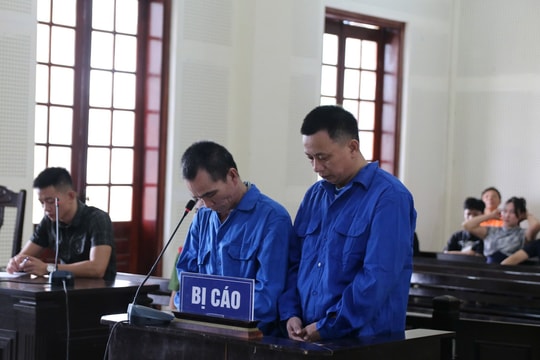Anti-corruption: Transactions from 200 million may have to be explained
Monitoring fluctuations in assets and income is a new provision of the draft law to overcome the formality in current regulations.
On the afternoon of November 9, the Government submitted to the National Assembly the draft Law on Anti-Corruption (amended).
Some new contents of this amendment are building an integrity regime, controlling conflicts of interest, monitoring fluctuations in assets and income...
Transactions from 200 million must be explained
Government Inspector General Le Minh Khai said that monitoring fluctuations in assets and income is a new provision of the draft to overcome the formality in current regulations.
Accordingly, the draft law stipulates the responsibilities of agencies and units controlling assets and income in proactively collecting and exploiting information and data on asset and income declarations.
This agency is also responsible for updating information and data on assets and income of declarants, requesting declarants and relevant agencies and organizations to provide information and data related to assets and income of declarants.
 |
| Government Inspector General Le Minh Khai presented the draft Law on Anti-Corruption (amended). |
The competent authority is also required to request the declarant to explain changes in assets and income when making additional declarations or to explain transactions with a value of VND 200 million or more to clarify the increased assets and income and to decide on the verification of assets and income when there is a basis as prescribed.
The draft also stipulates the duties and powers of the management and employment agencies that are obliged to declare assets and income, and coordinate the sharing and provision of information of relevant agencies, organizations and units to serve the monitoring of asset and income fluctuations.
The Government also presented to the National Assembly two options on subjects declaring assets and income.
Option 1: Expand the scope of people obliged to declare assets and income to all civil servants when appointed to a position (including civil servants of communes, wards and towns).
Option 2: Narrowing the scope of people required to declare assets and income only applies to subjects with a position allowance coefficient of 0.7 or higher at the central level, 0.9 or higher at the local level, and some subjects with a position allowance coefficient below 0.7 in some areas with high risk of corruption.
The National Assembly's Judiciary Committee - the agency examining the draft law - believes that for the time being, the subjects of asset and income declaration should remain the same or be narrowed down to a reasonable level, focusing on subjects holding important positions at the central and local levels, and areas at high risk of corruption to ensure the concentration of resources for more effective control, avoiding the formalities of the recent past.
The expansion of the subjects of declaration will be further studied when the control of assets and income of the above-mentioned subjects has been done well and there are enough resources to meet the expansion of the subjects of asset and income declaration according to the Party's policy that "in the future, all cadres and civil servants who are Party members must declare their assets".
Worry about business difficulties
The inspection agency is also not confident when the draft law not only stipulates that social organizations, public companies, credit institutions, and investment funds self-issue regulations on publicity and transparency in organization and operation, control of conflicts of interest and responsibilities of leaders, declaration and control of assets and income, but also assigns inspection agencies and other competent state agencies to conduct regular or ad hoc inspections.implementation of those regulations.
 |
| The draft law stipulates the responsibilities of agencies and units controlling assets and income in proactively collecting and exploiting information and data on asset and income declarations. |
Chairwoman of the Judiciary Committee Le Thi Nga emphasized that this provision needs to be considered very carefully to avoid causing difficulties for non-state enterprises. Because, currently, the Party and State's policy is to attach importance to and focus on developing the private economy, encouraging start-ups, and building a creative government, therefore, the regulation to expand the authority of state management agencies in regular and unscheduled inspections of enterprises needs to be extremely limited.
On the other hand, in the working sessions of Government leaders with enterprises, many enterprises have reflected that currently, with only the current regulations on the authority of inspection agencies (both administrative inspection and specialized inspection), every year many enterprises are inspected, causing significant impact on the normal operations of production and business..
It is necessary to consider very carefully, according to the auditing agency, because for types of enterprises such as public companies, credit institutions, and investment funds, the law currently has very strict regulations on publicizing activities, disclosing information, and on specialized inspection and examination.
Many opinions are also concerned that if there are no strict regulations on inspection procedures, especially the basis for conducting inspections in the draft law, it could easily be abused, said Chairwoman Le Thi Nga.
Immediately after listening to the presentation and the review report, the National Assembly discussed in groups the draft Law on Anti-Corruption (amended).
According to VnEconomy
| RELATED NEWS |
|---|

.jpg)






